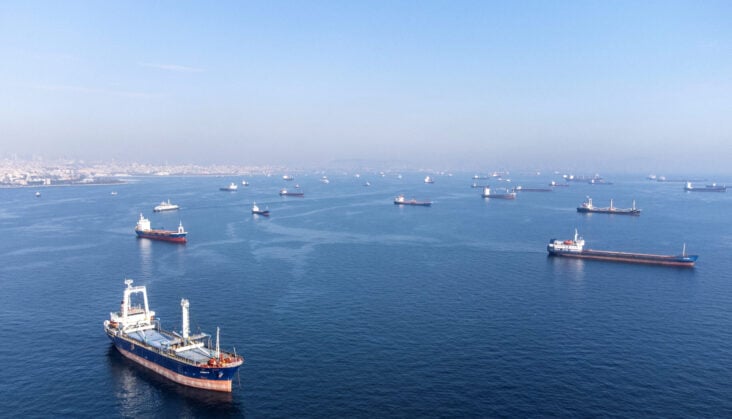Delhi may turn venue for dialogue on reviving the Black Sea Grain Initiative
Context
In meetings outside of the G-20 Summit, UN Secretary-General Antonio Guterres is attempting to resuscitate the Black Sea Grain Initiative (BSGI or BSI) while world leaders assemble in Delhi on Friday. The agreement that makes it easier for Russia and Ukraine to export grain expired in July.
What is the Black Sea Grain Initiative?
- An agreement known as the Black Sea Grain Initiative was reached between Russia, Ukraine, Turkey, and the UN. To guarantee that Ukraine could export its grain through the Bosphorus, the deal was negotiated in July 2022. Three Ukrainian Black Sea ports were able to export food and fertilizer thanks to the program. The ports are located in Yuzhny/Pivdennyi, Chornomorsk, and Odessa. To keep an eye on the initiative’s execution, the Joint Coordination Centre (JCC) was set up.
Which are the countries benefited from the BSGI?
- Russia, Ukraine, Turkey, and the UN came to an agreement known as the Black Sea Grain Initiative (BSGI). In July 2022, the UN helped mediate an agreement allowing Ukraine to export grain and other agricultural items via Black Sea shipping lanes. The contract expired on July 17, 2023.
- The BSGI permitted Ukraine to restart exporting millions of tons of grain over the Black Sea’s international waters. Over 725,000 metric tons of wheat were shipped from Ukraine by the World Food Programme to aid in humanitarian efforts in Yemen, the Horn of Africa, and Afghanistan.
Why did Russia pull out of the deal of the Black Sea Grain Initiative?
- Unmet Demands: Russia asserted that its demands for the continuation of the BSGI accord had not been met by the United Nations (UN) or Western nations. Although the material presented does not go into specifics, the requests are probably related to the agreement’s terms and conditions.
- Western sanctions’ effects: Even though food and fertilizer are excluded, Russia said that these restrictions were nevertheless impeding its exports. This shows that the sanctions may have damaged Russia’s agricultural exports in ways that went beyond those that were officially exempt.
- Contravention of the second deal: Russia claims that the Western sanctions violate a second agreement that was reached in July of the previous year. The UN agreed to support Russian exports, especially those associated with grain trade, for a three-year term as part of this second accord. The sanctions, in Russia’s opinion, violated this commitment.
- Sanctions Targets: In addition to Russian citizens, the state agriculture bank was also the target of the sanctions. The inclusion of this bank under the sanctions may have significantly impacted Russia’s capacity to conduct commerce given that it is essential for Russia’s agricultural exports.
- SWIFT Exclusion: Russia urged that its national agricultural bank be allowed to rejoin the SWIFT global payments network. A nation’s ability to conduct international trade can be significantly hampered by the removal of SWIFT, a crucial financial messaging network utilized for international transactions.
- Rejection of Compromise: Moscow rejected a compromise put out by the UN and the European Union (EU), which sought to establish a new division inside the bank and let it conduct transactions involving the trade of grains. The fact that Russia rejected this agreement showed that its demands were higher than those put forward in the compromise.
What is the proposed Compromise?
- The suggested agreement entails expanding Russia’s accessibility to financial markets. In exchange, Russia would undertake not to attack or bomb Ukrainian grain-exporting ships or ports.
- A fresh set of recommendations for Russia to think about has been created in cooperation with Turkey and the UN. These suggestions are meant to deal with the problems that caused the BSGI to expire.
What would be the impact of non-revival of the black sea gain Initiative?
- Because Russia and Ukraine together account for a sizeable share (21.9%) of global exports of barley, maize, and wheat, the BSGI is important on a global scale.
- If the BSGI agreements are not resurrected, food prices could rise globally, which could have negative repercussions, particularly in African nations.
What is the way forward from this crisis?
- Diplomatic Engagement: The parties involved must maintain their diplomatic engagement. This covers the United Nations, Western nations, Russia, Ukraine, and other parties involved. Dialogue and discussion should continue through open diplomatic channels.
- Addressing Sanctions: Discussions between Russia and Western nations are necessary to address the sanctions, which Russia thinks are impeding its exports. Part of the solution can involve finding common ground or taking required action to modify punishments.
- Readmission to SWIFT: It is important to address Russia’s request for the reinstatement of its national agricultural bank within the SWIFT global payment network. Considerations for everyone’s financial and economic security may be included in discussions about this issue.
- Clarifying and Addressing Demands: It’s critical to address each party’s unique demands and concerns. It is crucial to pinpoint potential points of compromise and endeavour to satisfy these requests to the satisfaction of all parties involved.
- International Mediation: If direct negotiations fail to produce a resolution, dialogue and negotiations may be facilitated through international mediation by an impartial third party or institution, such as the United Nations.





